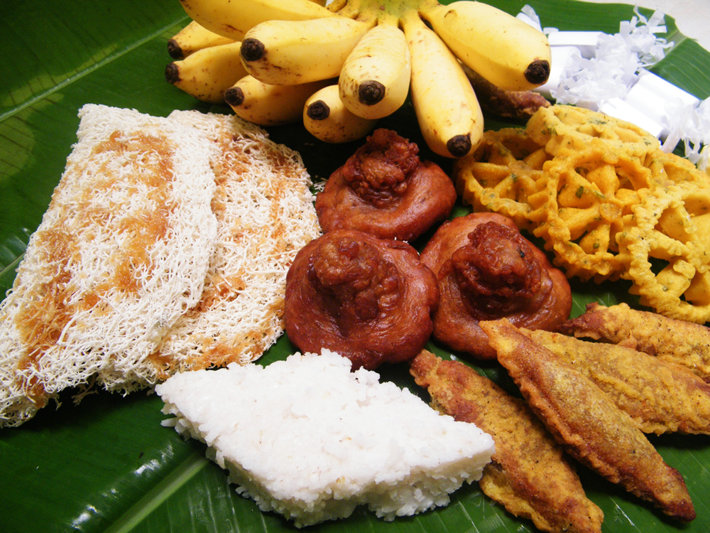Tamils around the world celebrated the New Year, Puthandu, in April. Although not a purely religious festival, it marks the day when Brahma, one of the three gods of the Hindu trinity, is believed to have created the universe. It is celebrated on the first day of the Tamil month Chithirai, which usually falls on or near April 14.

The day is honored by visiting temples and performing religious ceremonies for a new cycle of good fortune and prosperity.
This New Year celebration takes place across Tamil Nadu and Pondicherry in India and cities with large Tamil populations such as Durban, London, Toronto and Singapore.
With a recorded history dating two millennia, the Tamil population is 80 to100 million.
It is customary for Tamils to wake up on Puthandu to a tray decorated with three fruits—jack fruit, banana and mango—as well as betel nuts, betel leaves, flowers, a mirror and silver or gold jewelry. This ritual, known as kanni, is believed to bring happiness and prosperity in the coming year. Tamil Hindus also decorate their homes with colorful designs called Kolam, created from rice powder
In Singapore, devotees seek the blessings of deities at the Sri Srinivasa Perumal and Sri Vadapathira Kaliamman temples on Serangoon Road, the main commercial thoroughfare of the city’s Little India district.
The crowds of celebrants faced fewer pandemic-related constraints on gatherings compared to the past two years, following a relaxation of regulations for religious activities in March, Singapore’s state-owned news daily, The Straits Times, reported. Fully vaccinated individuals were allowed into the temples and unlike the past couple of years, they were permitted to move through the temple to perform the pradakshina, an act of devotion in which worshippers move around a sacred object following the path of the sun.
“Last year did not feel like Tamil New Year at all,” said Pon Nithya, a 32-year-old homemaker who lives near the Sri Vadapathira Kaliamman temple and visits it three times a week. “Being able to start the new year with a pooja [ceremonial worship] is special—it gives you positive energy.”
Puthandu in 2022 marks the 35th year of the Tamil calendar’s 60-year solar cycle, which currently runs from 1987 through 2047.
_______________
From its beginnings, the Church of Scientology has recognized that freedom of religion is a fundamental human right. In a world where conflicts are often traceable to intolerance of others’ religious beliefs and practices, the Church has, for more than 50 years, made the preservation of religious liberty an overriding concern.
The Church publishes this blog to help create a better understanding of the freedom of religion and belief and provide news on religious freedom and issues affecting this freedom around the world.
The Founder of the Scientology religion is L. Ron Hubbard and Mr. David Miscavige is the religion’s ecclesiastical leader.
For more information visit the Scientology website or Scientology Network.


